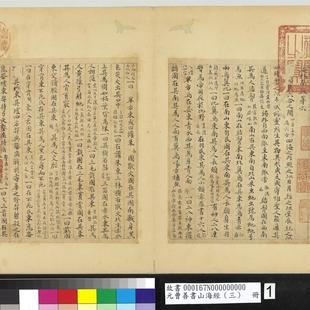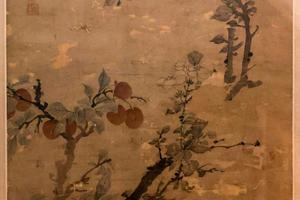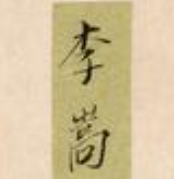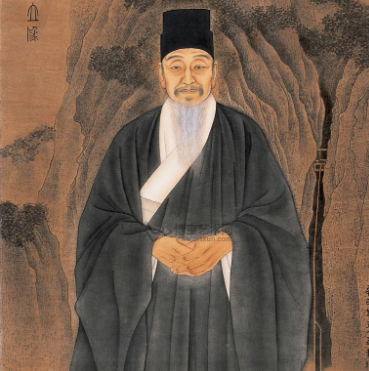找回密码
验证码错误或已过期
山海经(三)册 01

山海经(三)册 01
-
作者
-
分类未分类
-
创作年代
山海经(三)册 01 简介
31.7x47.4,,,,台北故宫博物院。参考资料:石渠宝笈初编(养心殿),上册,页474
参考资料:故宫书画录(卷三),第一册,页52
参考资料:曹善(活动于西元十四世纪后期),江苏华亭人,字世良,号樗散生,有诗名,处世刚正,不合于时。明太祖时,宋濂荐于朝,累征不起,苦志临池,初学钟繇,行草学二王,与兄世长、兄子恭,具有书名,一时称为东吴三曹。考曹知白之子名永,字世长,并无兄弟,善当为其族弟。本幅小楷书山海经,书于至正乙巳年(西元一三六五年),书风质朴端严,结字参差,用笔古拙之处可见钟繇遗法。
参考资料:Ts'ao Shan (style name Shih-liang, sobriquet Shu-san-sheng) was a native of Hua-t'ing, Kiangsu who was famous for his poetry. He was rather inflexible and stubborn in carrying out affairs so he did not fare well in society. During the reign of Ming T'ai-tsu (r. 1368-1398), Sung Lien recommended Ts'ao Shan many times. However, instead of agreeing to serve at court, he remained steadfast and practiced calligraphy. He first studied the calligraphy of Chung Yu. For running and cursive scripts, however, he followed the styles of the two Wangs. His brother, Ts'ao Shih-ch'ang, and brother's son, Ts'ao Kung, are also famous for their calligraaphy, and they were collectively called the "Three Ts'ao's of Wu." According to biographies, however, Ts'ao Chih-po's son Yung (style name Shih-ch'ang) did not have any brothers, so Ts'ao Shan must be one of his cousins. Ts'ao Shan used small standard script to write out this classic in 1365. His calligraphy is pure, simple, and elegant, and the structure of his characters is somewhat disorderly. A slight awkwardness in Ts'ao Shan's brushwork also reveals Chung Yu's influence.
简介
相关作品推荐





















